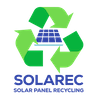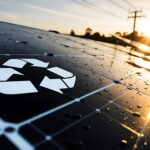The Perils of a Confused Conversation: Why Solar Panel Recycling Needs a Defined Language
In the swiftly evolving landscape of renewable energy, solar panels have become a cornerstone of sustainable power generation. However, as these panels near the end of their operational life, the conversation surrounding their recycling is mired in confusion—a confusion that could severely undermine the industry’s efforts to manage this impending challenge. At the heart of this issue lies the absence of a defined language, a problem that has plagued other areas of recycling, with dire consequences. We must learn from these mistakes to avoid a similar fate in the context of solar panel disposal.
The Danger of a Blanket Term
The term “recycling” is frequently bandied about as a catch-all solution, fostering the misleading belief that anything labelled as recyclable will be effortlessly transformed into new products. This oversimplification masks the complex realities of recycling processes, leading to significant gaps in understanding and action among businesses, the public, and policymakers.
Consider the case of plastic recycling. For years, the public was led to believe that placing plastics in a recycling bin guaranteed their transformation into new products. In reality, the situation was far more complicated. Different types of plastics require distinct processing methods, and much of what was collected ended up either shipped overseas to countries ill-equipped to handle it or was simply deposited in landfills. The fragility of the system was starkly revealed when China, once the world’s largest importer of recyclable waste, implemented its “National Sword” policy in 2018, effectively banning the import of most plastics and other materials. The global recycling industry was thrown into disarray, and only then did many realise how fragile the system they had long trusted truly was.
Lessons from E-Waste
A similar issue has arisen with electronic waste, or e-waste. E-waste contains valuable materials like gold and copper, but it also harbours hazardous substances. For years, the public and even some businesses assumed that e-waste was being responsibly recycled. However, much of it was being shipped to developing nations, where unregulated recycling practices exposed workers to dangerous conditions and led to severe environmental pollution. The lack of a defined language around what constitutes safe and effective e-waste recycling meant that policymakers were slow to act, and the public remained largely unaware of the true costs of their discarded electronics.
The Solar Panel Recycling Dilemma
Now, solar panels risk falling into the same trap. The term “recycling” is being used without a clear understanding of what it actually entails for these complex products. Solar panels contain valuable materials like silicon, silver, and rare earth elements, but they also include potentially hazardous components. Recycling them is not a straightforward process—it requires specialised facilities and technology that is not widely available. Yet, without a defined language to distinguish between different types of recycling processes, there is a real danger that businesses, the public, and policymakers will assume that the mere existence of “recycling” options means the problem is already solved.
If the public believes that solar panel recycling is as simple as placing them in a bin, or if politicians create policies based on this oversimplification, the consequences could be severe. We could face a situation similar to the plastic or e-waste crises, where the reality of recycling infrastructure lags far behind public expectations and policy requirements. This gap could lead to environmental harm, wasted resources, and a loss of public trust in renewable energy initiatives.
A Call to Action
To avoid repeating the mistakes of the past, it is imperative that we establish a clear, defined language around solar panel recycling now. This means differentiating between types of recycling processes, educating the public on the realities and limitations of current technology, and ensuring that policymakers are fully informed when crafting legislation. Only with a shared and precise understanding can we hope to build a recycling infrastructure that truly supports a sustainable future.
In the end, the words we use matter. If we fail to articulate the complexities of solar panel recycling, we risk not only the success of this industry but also the broader goals of environmental stewardship and sustainability. Let us learn from the errors of other recycling initiatives and commit to a more informed and effective conversation about the future of solar panel recycling.
At SOLAREC, we recognize the urgency of establishing a clear and standardized language around solar panel recycling. As a pioneering company in Adelaide, we are committed to leading the charge in addressing the complex challenges associated with end-of-life solar panels. Our approach is rooted in transparency, technological innovation, and a deep understanding of the materials and processes involved. By partnering with local solar farms, installers, and policymakers, we aim to build a recycling infrastructure that not only meets current demands but anticipates future growth. SOLAREC is dedicated to ensuring that solar panel recycling is not just a catchphrase, but a meaningful, sustainable practice that contributes to a cleaner and greener energy future for all.
Contact us now to collaborate, communicate and to be part of the solution for end of life PVs.





